Jan Ullrich and the long road home
1997 Tour de France winner recovering in rehab
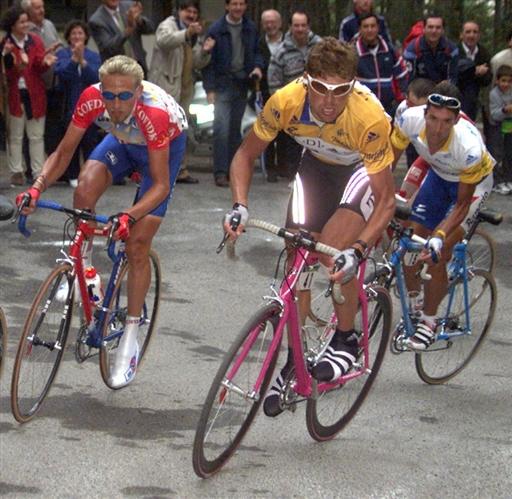
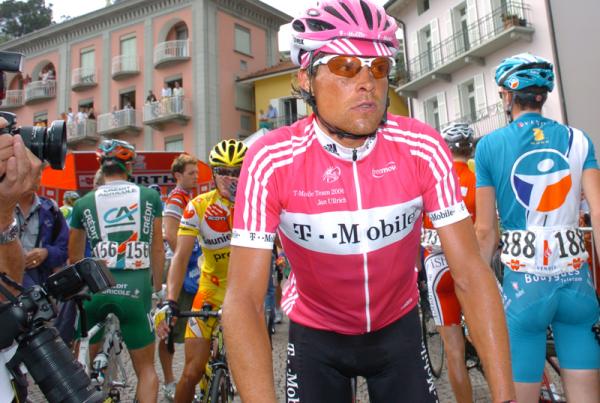
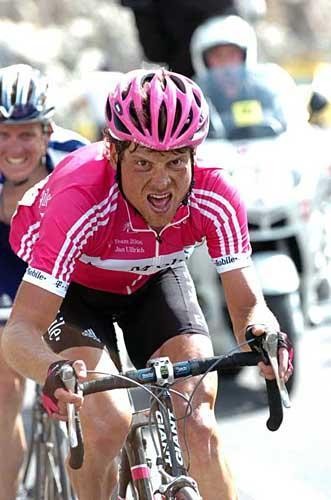
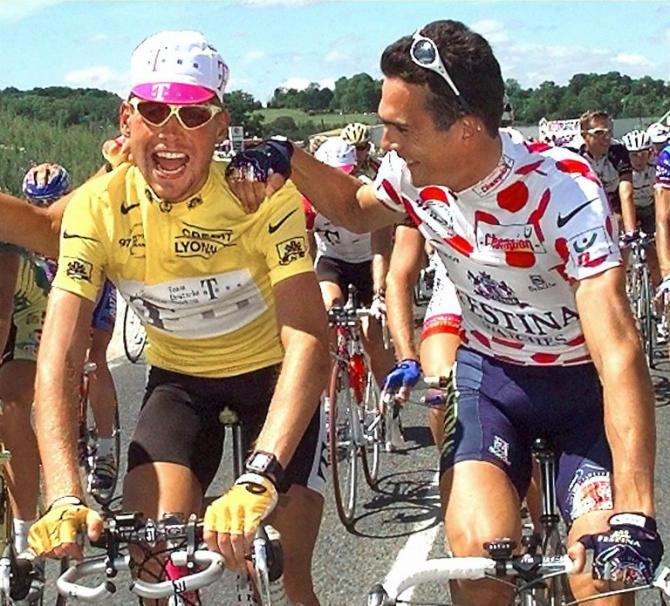
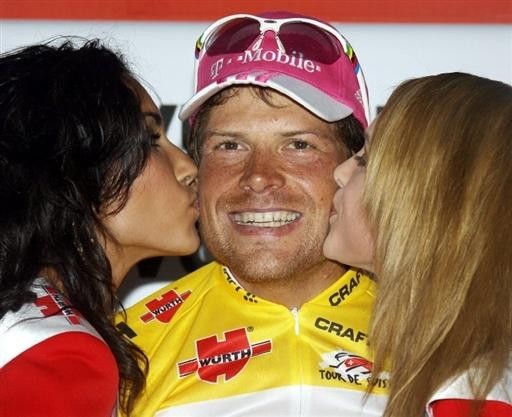

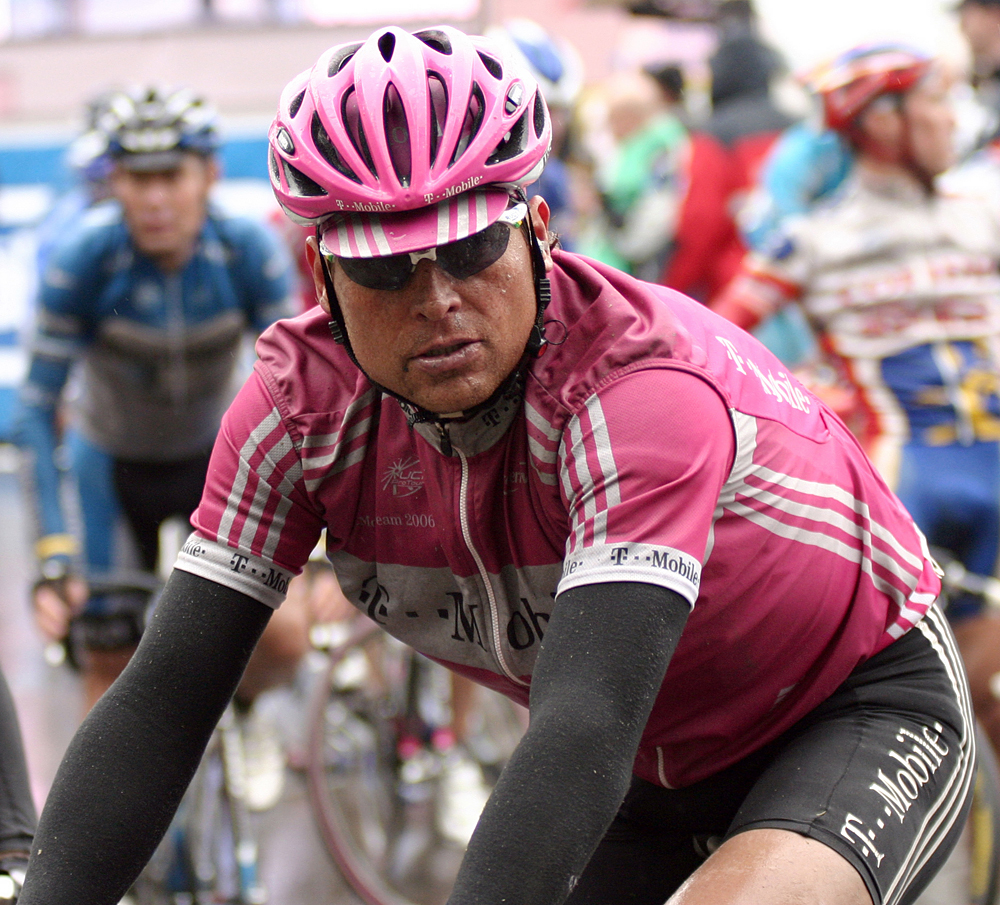
Jan Ullrich's former T-Mobile teammate, Rolf Aldag, has a story about the 1997 Tour de France winner that may either inspire hope about Ullrich's current predicament, or more fear, or tell us nothing at all.
Jan Ullrich comes in from the cold
Jan Ullrich not invited to Tour de France Grand Depart in Dusseldorf
Ullrich needs to deal with his past but deserves a second chance, says Kittel
Ullrich not dwelling on his past, 20 years after Tour de France victory
Ullrich takes in the Tour de France from the roadside
Jan Ullrich given suspended sentence and probation for drunk driving accident
Midway through a 1995 neo-pro season that had met no one's expectations, the Telekom team management dispatched Aldag to the Black Forest to ride with Ullrich and apply a gentle tug to the young man's bootstraps.
On the first morning of the impromptu camp, Ullrich called Aldag to ask whether they were still going to train. Aldag was confused. Well, Ullrich said, if he looked out of the window, Aldag would see it was drizzling.
The tone was set for an exasperating, enlightening couple of days.
On the first and second rides, a pattern was established: Ullrich's wheezing and whining – "I'll never be as fit as you. I'm useless!" – accompanying them on every climb, and Aldag riding out of every junction shaking his head, having had to tell Ullrich whether they were going left or right.
At the end of day two, as they swung down off the final climb and into the valley where Ullrich lived, and his girlfriend Gaby's parents owned a vineyard, Aldag pointed to the unmistakable emerald hump of the Kaiserstuhl, or 'Emperor's Chair' – the hill that dominates the skyline over Freiburg.
There was a flicker of recognition in Ullrich's eyes.
Get The Leadout Newsletter
The latest race content, interviews, features, reviews and expert buying guides, direct to your inbox!
"It looks a bit like the Kaiserstuhl, but it can't be…"
Aldag glared at him.
"Jan, what is wrong with you? You live here. Do you not train on these roads?"
Ullrich's geography hadn't improved when they reconvened the next morning, but a dozen or so hours of hard graft had transformed him on the bike. By their fourth outing, Aldag could barely hold the wheel.
"He'd improved in four days the amount that I would in three weeks. Already then you could stand back and say that was pure talent, whatever he did later in his career. He was just on a different level."
Unfortunately an ability to ride a bike like Caravaggio could paint or Bach compose will not cure Jan Ullrich now, and neither will the same chronic lack of initiative and self-leadership about which nearly everyone who knows him has a story.
At best, those anecdotes might still raise a rueful smile, or help to explain why so many people still hold 'Der Kaiser' so close to their hearts. As Aldag also told me, "Every January, there'd be a photo of big, fat Jan and a headline: 'Dicker Jan – Fat Jan'.
"The common people would read that and say, 'See! He's having the same problems as me! Christmas was shit – I had dinner with the family twice, and that was three more kilos…. You see: Jan's one of us!' Then this fat guy goes and nearly wins the Tour de France. And everyone's, like, 'He could do it, so I could do it.' There was something about that that really connected with people."
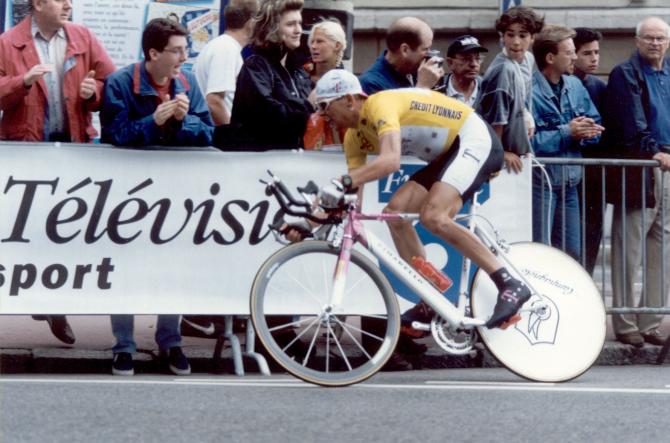
Another ex-T-Mobile teammate, Jörg Jaksche, pinpointed one key difference between Ullrich and his eternal rival, Lance Armstrong: "Lance was smart, curious. Jan was curious about ice-cream."
The mirth these memories used to cause, though, suddenly leaves a bitter taste given Ullrich's present plight. Cod psychologists will indeed say that the same artlessness and poor judgment that made Ullrich so likeable – much more than the East German upbringing, any intrinsic vulnerability in the pro cyclist's psyche or the schizophrenic judgments that have fallen upon one messy, messed up generation – have landed the 44-year-old precisely where he is today. That is, in a rehab clinic near Frankfurt, trying to purge whatever demons and toxins possessed him to break into actor Til Schweiger's garden two Fridays ago, and last week to allegedly attack a prostitute.
Of course, casting Ullrich as a caricature was always one way to dehumanise a young man who had already undergone that process, in a different setting, as a young sportsman in the GDR. His troubles were never far beneath the surface – and they have now submerged him.
Just how far he has fallen again became apparent in a video posted to YouTube on Friday. Ullrich had sent dozens of similar ones to friends on WhatsApp over the past few months. Many respected German news outlets judged the clip – of Ullrich rambling incoherently into his mobile phone on a six-minute walking tour of his finca in Mallorca – too shocking or sad to publish.
After the revelations earlier in the week, of him peppering plasma TVs with an air rifle whenever an "enemy" appeared on screen, or about what occurred at the Kennedy hotel in Frankfurt a week ago, it's a wonder that anyone gave a second thought to his dignity.
Here may not be the place to begin the labyrinthine, perhaps impossible, process of apportioning blame. It is certainly not the time to make excuses for a man who stands accused of last week attacking a woman, and who before that had cheated in bike races.
Perhaps, to use a favourite expression of the best and maybe only male role model Ullrich ever had – his granddad – more than ever now, "Words are silver and silence is golden."
If this were true, the greatest gift we could offer Ullrich would be a respectful distance, a halt to the intrusions, a physical and mental space in which to untangle the thickets and thorns that have blocked the sun from his life and made every move a painful struggle. Hopefully this respite is what he will get in rehab over the next few weeks, before the daunting prospect of justice running its course.
In the meantime, we may at least feel emboldened to reflect on one aspect of this sorry saga. It is not breaking news to say that Germany has a unique, deeply self-conscious relationship with the human experience of shame. Neither would it be wrong to suggest that Ullrich's moral exile after his involvement in the Operación Puerto doping scandal in 2006 was especially stark.
In interviews, he would sound unrepentant, adamant that he had done nothing wrong, but his unwillingness to seek redemption and Germany's to give it created an excruciating, farcical standoff. The mutual embarrassment was compounded by Ullrich choosing to base himself and his family first in Switzerland and then Mallorca.
Parallel to this, in Ullrich's former workplace – professional cycling – hypocrisy continued and continues to run amok. A year on from a Tour de France start in Düsseldorf that Ullrich attended almost incognito, having been denied an official invitation, the familiar face and high-pitched voice of Richard Virenque still greets visitors to the Village Départ hospitality area before every stage start.
In the 1997 Tour, Ullrich's margin of victory over Virenque, the runner-up, was just over nine minutes. The discrepancy between the way the two men have been treated since their respective doping cases – and their very similar respective failures to take full responsibility – is an awful lot wider.
If this was the only inconsistency, that would be awkward enough. It would still sting for Ullrich and many of his peers. But at no point since USADA's Reasoned Decision have the sport's power brokers seemed genuinely interested in how to deal with dark family secrets that go back not one or two generations but to the very start.
Meanwhile, those of us tasked with making sense of the charade muddle through, celebrating some riders and demonising others. We tiptoe around uncomfortable truths and elephants in the room, trying to pretend there's no human toll and that, in any case, maybe these guys deserve to have their lifetime's work and their whole identity as men obliterated with one sweep of the eraser. And yet we let others like them bask.
There are no easy solutions to any of this. Jan Ullrich won't find any simple answers to his problems, either. A man can also become an alcoholic, or get high, or even commit acts of violence without being a former sporting prodigy whose career went awry. No one disputes any of that.
Equally, though, and without talking about "duty of care" or diminishing the responsibility of athletes who are ultimately adults, is it not about time that cycling also started to finally have those difficult, grown-up conversations that Jan Ullrich and Germany, among others, could never really engage?
Rolf Aldag's vignette from 1995 could yet turn into the perfect metaphor for the journey of Jan Ullrich. Bereft, disoriented, not knowing which way to turn, Ullrich will hopefully surprise and delight those of us who wish him well, drawing on unsuspected inner resources, like he did every spring to salvage disastrous build-ups to the Tour de France.
"He wasn't stupid. Once he'd figured something out, he knew what to do," Aldag told me in 2015.
At lunchtime last Monday, the villa outside Palma where the Ullrichs seemed until recently to have created their idyll was finally tranquil again. There were no splashes coming from the pool. There was no German rap music blaring out over the olive groves. The last paparazzo had vacated the premises when, the day after his first arrest and release, Ullrich had marched out of the gate, shirtless and wild-eyed, and tried to confiscate or block his camera.
Jan Ullrich's world has long been examined through an unforgiving lens. Now it is only by shifting his view of the once charming and admired man in the mirror, one senses, that he can still find the road home.
Daniel Friebe's forthcoming biography of Jan Ullrich will be published in the UK by Pan Macmillan
If you've ever wanted to know what it feels like to be part of a top-level cycling team, and to be on the ground, inside the barriers, at the Tour de France, then RUNNING WITH WOLVES will take you there. It is available to rent for $3.99 USD or buy for $6.99 USD.
You can also still purchase our first two films, THE HOLY WEEK and CRESCENDO, on Vimeo.
RUNNING WITH WOLVES from Cyclingnews Films on Vimeo, produced by La Pédale and a special thanks to Quick-Step Floors.